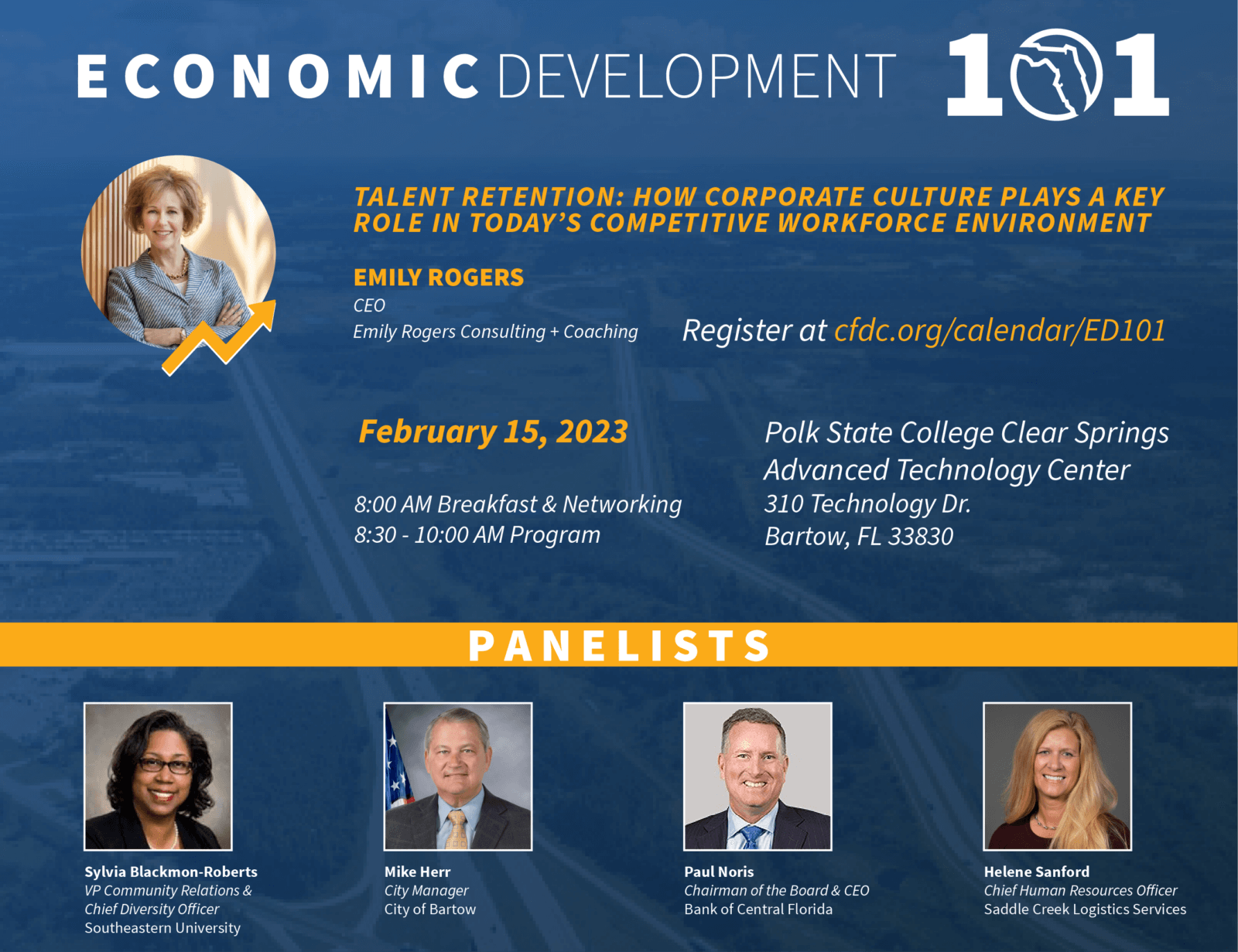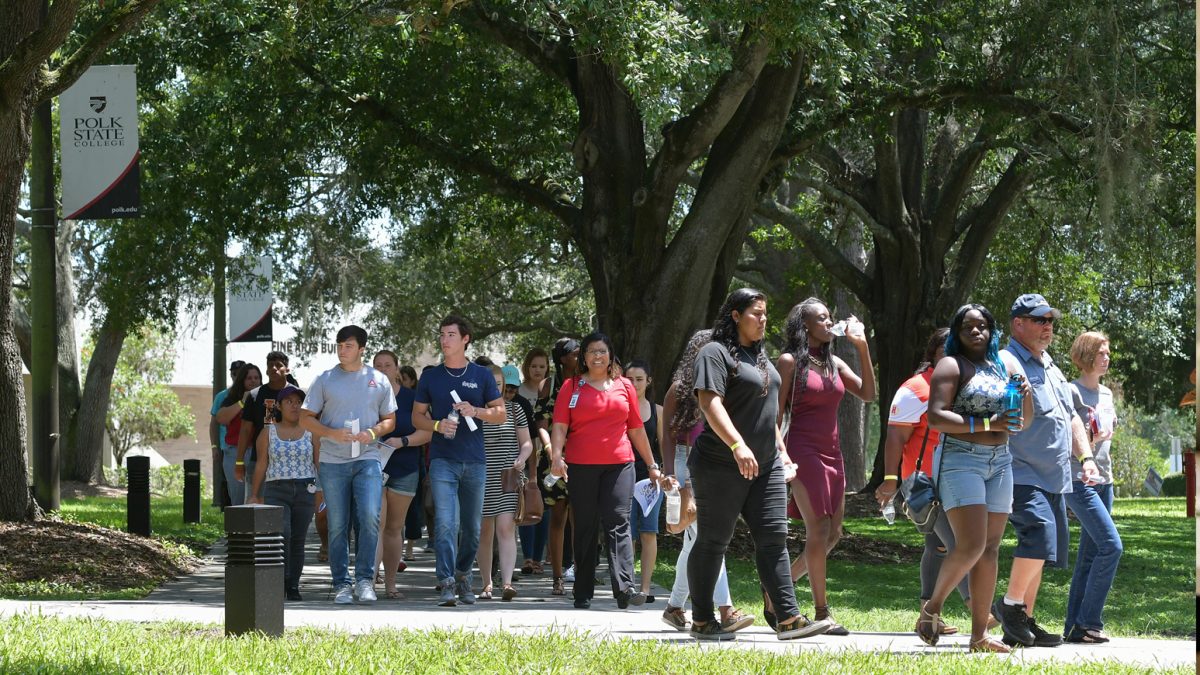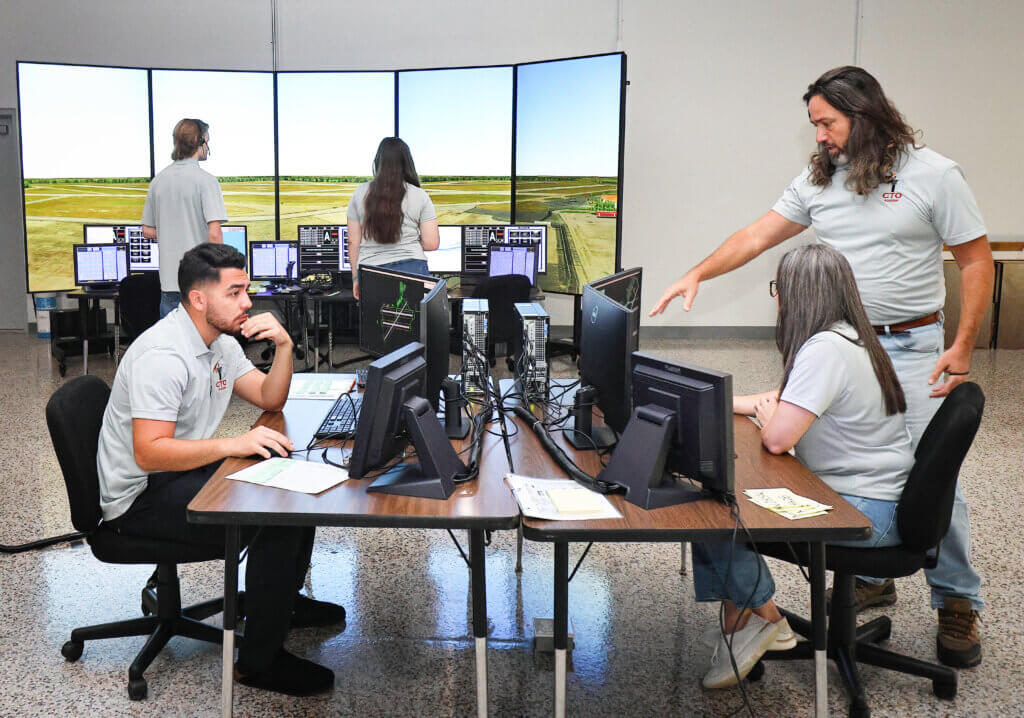CFDC Hosts Free Event to Share Best Practices for Talent Retention, Healthy Work Culture
In a job market with the lowest unemployment rate since 1969, finding and keeping talent is a critical component to keeping a business operating efficiently.
To help navigate the increasingly tight job market, the Central Florida Development Council is offering local businesses an opportunity to attend a panel discussion titled “Talent Retention: How corporate culture plays a key role in today’s competitive workforce environment.”
Emily Rogers, CEO of Emily Rogers Consulting + Coaching, will lead the Feb. 15 discussion, which will begin with breakfast and networking at 8 a.m., followed by the program from 8:30 to 10 a.m. at the Polk State College Clear Springs Advanced Technology Center in Bartow.
Register for the free event at www.cfdc.org/calendar/ED101. Registration ends February 14.
“Within economic development, workforce continues to be a driving factor of competitiveness. Not only is it important for a community to have available talent for new businesses, but communities must also help existing companies build and retain their current workforce,” said CFDC Senior Vice President & COO Lindsay Zimmerman. “In today’s high-stakes talent environment, corporate culture is an important component of workforce retention. Join us to learn more about building a corporate culture that retains critical talent and hear from several Polk County companies who are focused on fostering an environment where their employees thrive.”
Rogers will discuss three guiding principles to follow to cultivate organizational culture and the four components of a strong and sustainable employee value proposition. The culture of an organization is something she refers to as the ecosystem – the climate or environment that people operate in – and the role that plays in talent retention.
“It’s always an important topic for any business that wants to be high performing,” Rogers said. “And it’s even more important right now due to a lot of instability in the labor force.”
She sees three reasons for that instability:
- The period described as the Great Resignation, which was last year, is not over.
- Companies in some sectors are reducing their workforce to offset revenue declines.
- Boomers are continuing to exit the workforce.
“Some are describing this unstable period as the Great Reshuffle — turnover due to unexpected departures, planned departures or layoffs,” she said. “Companies are trying to maintain trust and team morale.”
Having a healthy work environment is more critical today than ever.
“There are generational shifts occurring in our labor force, amplifying the need for this conversation,” Rogers said. “Employees who recently entered the workforce and those coming right behind them, graduating college in the next few years, are much less tolerant of things like a toxic boss and an organization that doesn’t have a higher calling or purpose. That generational shift will become more pronounced in future years. Organizations that don’t respond to this shift and values will have a much harder time attracting and retaining talent.”
She describes why a healthy workplace is important. “A healthy workplace environment stimulates engagement, more engagement equals less turnover, less turnover equals higher productivity and more productivity propels the overall company performance. It creates a competitive edge. (If everything else is equal), but if your culture is healthier than your competitor’s, you’re going to win that game every time.”
Companies can do two simple things to improve their culture, Rogers said. “Measure it and monitor it. Evaluate the culture. Do employee surveys, get feedback. Build connections and community to each other, which strengthens the bond and trust, and to the company mission and purpose and the role everyone plays to help achieve that. Create a space for meaningful connection and give people something greater than themselves to care about.”
Rogers will guide the discussion among the panelists, who are:
- Sylvia Blackmon-Roberts, vice president of Community Relations & Chief Diversity Officer at Southeastern University
- Otis Coracides, managing director of Frinsa USA
- Mike Herr, recently retired city manager of Winter Haven
- Paul Noris, chairman of the board and CEO of Bank of Central Florida
- Helene Sanford, chief human resources officer at Saddle Creek Logistics Services
The panelists were selected because they are “truly leading the way for others to follow,” Rogers said. “They represent various sectors and a nice range of sizes of companies. All have strong track records of cultivating healthy cultures and so much wisdom to share.”
Among other things, she will ask them to share what their organization’s culture is contributing to their ability to retain talent and the retention challenges they are experiencing – and overcoming.
About 100 people have already registered to attend the event.




